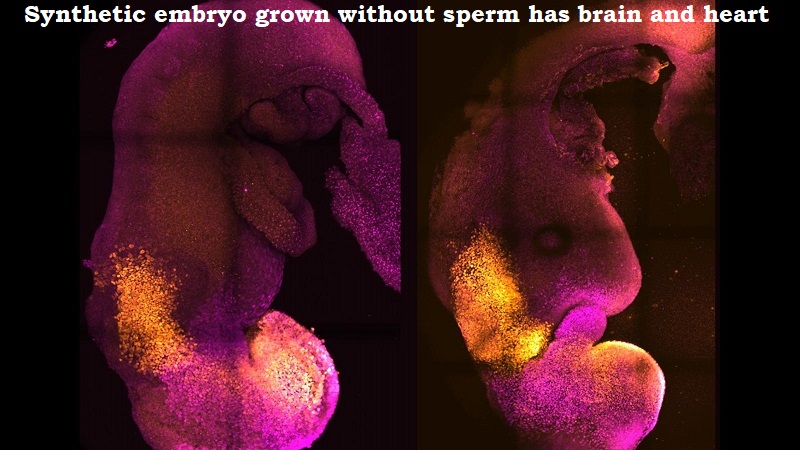
A synthetic mouse embryo that lacks male sperm has been successfully developed by scientists, marking a recent medical advance.
They successfully created an embryo with a beating heart, a brain, and vitals for other organs using stem cells from mice to reproduce the initial stage of life.
The body’s master cells, which can differentiate into practically any type of cell in the body, were used to simulate the natural process of life in the lab instead of eggs or sperm. The embryo, which had the same structures as a natural one, was formed eight and a half days after fertilisation.
According to the study, which was published in the journal Nature, their finding reveals how embryonic and two different types of extra-embryonic stem cells can self-organize to recreate mammalian development.
The researchers induced expression of a particular set of genes and established a unique environment for their interactions and got the stem cells to ‘talk’ to each other.
The stem cells then self-organized into structures that advanced through the subsequent developmental stages until they had a beating heart and the brain’s building blocks, in addition to the yolk sac where the embryo develops and receives nutrients during its first few weeks.

Post Your Comments